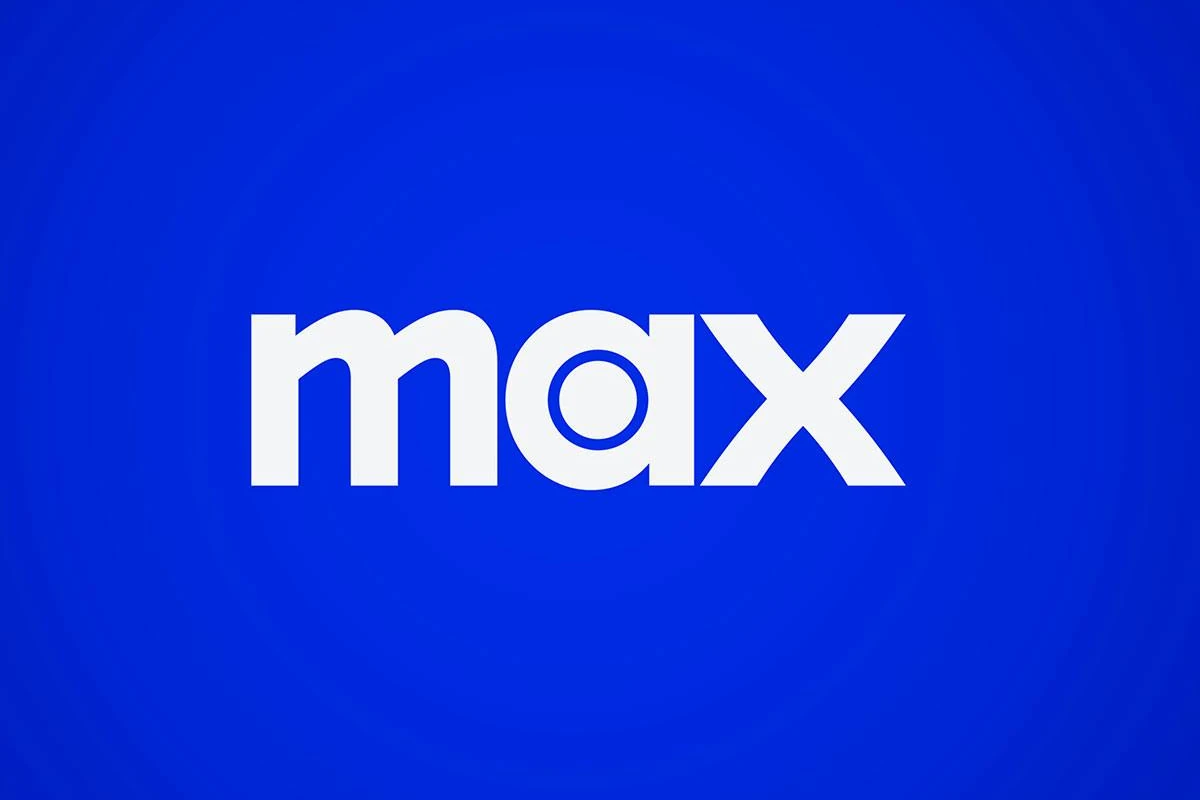The streaming wars have entered a new phase, and Max (formerly HBO Max) is no longer playing nice when it comes to password sharing. Following in the footsteps of Netflix and Disney+, Max has officially launched its password-sharing crackdown, signaling a broader shift in how streaming services manage user access — and monetize it.
What’s Changing: The “Extra Member” Fee
As of April 22, 2025, Warner Bros. Discovery introduced a new “Extra Member” feature for Max subscribers. If you want to share your Max account with someone outside your household, you’ll need to pay $7.99 per month per person. That add-on gives them:
- A separate login and profile
- Personalized recommendations and watch history
- The ability to stream on one device at a time
This feature is currently limited to direct Max subscribers, meaning if you’re using a bundled plan through Disney+ or Hulu, you’re out of luck — at least for now.

Max’s Strategy Mirrors Industry Giants
Max is the latest streamer to make this move, following a trend that started gaining serious traction in 2023:
| Streaming Service | Extra Member Fee | Availability | Device Limits |
|---|---|---|---|
| Max | $7.99/month | Direct subscribers only | 1 device per extra member |
| Netflix | $8.99 (no ads) / $6.99 (with ads) | Global | 1 device per extra member |
| Disney+ | Starting at $6.99/month | Rolling out in phases | 1 device per extra member |
The goal is clear: convert freeloading viewers into paying customers. And it’s working — Netflix reported a boost in subscriptions after its crackdown, despite the initial backlash. Max is betting on a similar outcome.
Profile Transfers So You Don’t Lose Everything
To soften the blow, Max rolled out a profile transfer tool. If you’re moving from someone else’s account to your own or becoming an “extra member,” you can take your profile with you — including:
- Watch history
- Continue-watching lists
- Personalized algorithm suggestions
- Parental controls and preferences
It’s a smart move that reduces friction and keeps users engaged, rather than starting over with a blank slate.
Limitations and Restrictions
Here’s the catch: you can only add one extra member per Max account, regardless of which tier you’re on. That means if you were sharing your password with multiple family members in different cities, you’re now being asked to make some tough decisions — or open separate accounts.
Also worth noting: Max is actively detecting account sharing behaviors. Users trying to stream from different households without the upgrade may start seeing pop-up warnings and nudges to legitimize their access.
The Bigger Picture: Why This Is Happening
Let’s be honest — streaming companies are under pressure. With subscriber growth plateauing and the golden age of “growth at any cost” over, profitability is now king. In a world where nearly 100 million people were reportedly watching Netflix without paying for it at one point, platforms are taking action.
Max’s parent company, Warner Bros. Discovery, has been restructuring and trimming costs across its entertainment empire. The password-sharing clampdown is one more step toward improving revenue per user and squeezing more value out of its existing customer base.
How Viewers Are Reacting
Reaction online has been mixed:
- Frustration from people who split costs with friends or family across households
- Confusion about why it’s happening now, especially during inflation and rising subscription costs
- Acceptance from users who understand the business move, especially after similar policies elsewhere
Reddit threads and X discussions have lit up with memes, complaints, and comparisons to the early days of “password-sharing is love” streaming culture. Still, most users recognize that this is now the industry standard.
What Extra Members Actually Get
One detail worth highlighting is that Max’s Extra Members aren’t just profile clones — they receive most of the same benefits as the primary account holder. That means even if you’re added as an extra member for $7.99/month, you’re not getting a stripped-down version of Max.
Here’s what’s included:
- Their own login credentials
- Separate watch history and recommendations
- Access to the base plan features (depending on whether the main account is ad-supported or ad-free)
- Streaming on one device at a time
In essence, it’s like having a full Max account experience — just tethered to someone else’s billing.
Max’s Long-Telegraphed Plan
This crackdown didn’t come out of nowhere. Warner Bros. Discovery has been telegraphing this move for a while. JB Perrette, the company’s head of streaming, first hinted at paid sharing in December 2024, saying the rollout would begin in Q1 2025. The timeline slipped slightly into Q2, but the plan stayed intact. It’s part of a broader shift to wring more value from existing users as subscriber growth cools across the board.
So while the change may feel sudden to casual viewers, it’s been in the works behind the scenes for months.
Whether you see it as a necessary evolution or a greedy cash grab, one thing is clear — the days of casually sharing your Max login with your cousin three states away are over.
Key Takeaways
- Max is increasing efforts to limit password sharing.
- Account sharing outside households now requires an extra monthly payment.
- Changes reflect broader industry trends among streaming services.
Overview of the Max Password-Sharing Crackdown
Warner Bros. Discovery has started enforcing new rules on password sharing for its Max streaming service in the U.S. The major changes affect how subscribers use and share their accounts with people outside their households.
Reasons Behind the Crackdown
One of the main reasons for the password-sharing crackdown is to increase revenue. By limiting access to only those in the same household, Max aims to prevent multiple users from viewing content without paying. This approach follows steps taken by other streaming services in the industry.
Warner Bros. Discovery noted that password sharing often leads to lost profits. When several households use the same account, there are fewer individual subscribers. The company believes this change will lead more people to pay for their own subscription or to add an extra member for a set monthly fee.
Another key factor is content security. Restricting password sharing helps ensure that only paying customers can use the Max platform. This policy change is part of a larger effort to make streaming more profitable and secure for both the business and its subscribers.
How the Policy Is Enforced
Enforcement begins with subscribers being notified that sharing passwords outside of their household is not allowed. Max now uses technology to track which devices are regularly connected to an account. If a device is detected in a different location, it may be flagged as an unauthorized user.
If subscribers wish to share Max with someone outside their household, they can now add an Extra Member. This extra member feature comes at an added cost of $7.99 per month and gives the added user their own standalone profile. Only one extra member can be added per account in the U.S.
Max follows a process similar to what Netflix has already put into place. These updates are intended to clearly define household limits and set clear rules on what is and is not allowed. Violations can lead to restricted access or prompts to pay for proper usage. Details can be found in announcements from Warner Bros. Discovery.
Impact on Subscribers and Households
Many subscribers will see changes in how they use Max. Those who share their account with friends or relatives outside their home will need to either stop sharing or pay for an extra sub account. Households who only use one account as intended should not be affected.
The policy may lead to some frustration among users who have shared costs or split subscription fees in the past. However, the extra member solution lets households add a secondary user without needing to open a full new account. The price for this add-on is $7.99 each month, which is lower than buying another subscription.
New enforcement means users could lose access if they are not officially part of a household or not an extra member. Warner Bros. Discovery hopes these changes will encourage more people to subscribe directly, leading to more predictable account usage for Max. More details are outlined by CNBC and PCMag.
Comparison With Other Streaming Services
Streaming services have been changing their policies to address password sharing. They use different ways to limit unpaid account access across TV shows and films.
Netflix’s Password-Sharing Strategy
Netflix was the first major streaming service to start a wide password-sharing crackdown. It now lets members add people who don’t live in their household for an extra fee per month.
If users keep sharing passwords outside their home, Netflix can block access or ask for a payment for an “extra member” slot. This move caused some users to drop their subscriptions, but many chose to pay the new fee.
Netflix also tracks account activity by checking IP addresses, device types, and locations. The company uses this data to detect when an account is being used in multiple homes.
Approaches by Hulu, Disney+, and Peacock
Hulu and Disney+ are joining the effort to stop password sharing using clearer user agreements and improved technology for account security. For example, Disney+ started cracking down this year and now limits use to people in the same household.
They use software to spot login patterns that could show sharing. Hulu also warns subscribers that sharing passwords outside their family goes against its terms. Both platforms may suspend accounts or request proof of address if rules are broken.
Peacock, owned by NBCUniversal, has not launched a full crackdown but does mention in its guidelines that accounts are only for personal use in one household. Enforcement has been less strict, but updates are expected as the industry focus on account sharing grows.
Amazon Prime Video, Paramount+, and Apple TV+ Policies
Amazon Prime Video allows multiple streams from one account but lists limits on how many people can watch at once. While Amazon has not announced a full crackdown, it may change its approach as more streaming platforms tighten their rules.
Paramount+ lets family members use one account but warns that sharing outside the main household is not allowed. Still, enforcement is light so far. Apple TV+ has a family sharing option through Apple IDs, letting up to six people share a single subscription if they are part of the same family group.
These platforms, while less strict than Netflix or Max, may update their policies soon. As more subscription services launch their own shows and films, they continue to review how account sharing affects their business and user experience.
Customer Experience and Industry Impact
Warner Bros. Discovery is rolling out strict new rules on Max password-sharing. Subscribers will see changes in device usage, account management, and available plan options, while the company seeks higher profits and better growth in a competitive streaming landscape.
Changes to Account Management and Device Limitations
Max is setting limits on how and where accounts can be used to curb password sharing. Accounts will now be more closely tied to a single household, often based on the main IP address. Users trying to log in from a different location may face extra verification steps or be prompted to create a new account.
Device limitations are more strict. Only a certain number of screens can stream Max at the same time, pushing users to buy “extra member” slots if they want to share with people outside their home. This is similar to steps taken by platforms like Netflix and means that sharing an account with friends or extended family is much harder than before.
Subscribers who want access on more devices or to use ad-free plans may need to upgrade or pay extra. This shift is likely to be most noticeable on popular plans like the ad-free and commercials-free options.
Implications for Subscriber Growth and Revenue
Warner Bros. Discovery hopes the crackdown will boost revenue by converting shared users into paying customers. Recent moves by Netflix led to increased sign-ups, and Max is likely aiming for a similar effect. By charging for “extra member” accounts, the company adds a new source of income and reduces lost revenue from unpaid viewers.
Subscriber growth will depend on whether people pay for extra slots or stop using Max. Some users may cancel if forced to pay more, especially if they use multiple platforms like HBO Max and Discovery+. However, higher-paying customers could help balance any loss in overall subscriber numbers.
Ad-supported plans may become more appealing to budget-minded users. Offering a lower price point can keep some viewers from leaving, even if it means seeing more commercials.
Warner Bros. Discovery’s Strategy and Leadership
JB Perrette, head of global streaming at Warner Bros. Discovery, has been vocal about following industry trends in managing subscriptions. The company is reacting to changing market conditions and trying to remain competitive with streaming rivals.
By aligning Max’s policies with those of Netflix and others, Warner Bros. Discovery strengthens its position in the crowded streaming market. Tightening account management supports sustainable business practices and helps protect valuable content.
This strategy also reflects the company’s desire to offer flexible options across different services, from Max to Discovery+ and HBO Max, while maintaining control over account security and usage. These efforts are central to its global streaming ambitions. For more on Max’s extra member accounts, see Variety’s article about how Max is selling extra member accounts.
Frequently Asked Questions
Streaming platforms like Max are making their account policies stricter as they try to limit password sharing. These changes affect how users manage their accounts, what information the services monitor, and what happens if someone is accused of breaking the rules.
What are the new policies implemented by streaming services to prevent password sharing?
Max and other major streaming platforms now require that an account is only used by household members who live at the same address. Some services, including Max, offer paid “extra member” options for those who want to share with people outside their home. For more details, see how Max is selling extra member accounts.
How will the crackdown on password sharing affect existing shared accounts?
People who currently share their Max account with others outside their household may receive warnings or alerts. Shared users could lose access if they do not live with the account owner. Some accounts may need to pay extra or shift to individual subscriptions. The rollout has begun and will ramp up through 2025.
What methods are streaming services using to detect unauthorized account sharing?
Streaming services use location data such as IP addresses and device IDs to determine if users live at the same address. Regular logins from different locations can trigger review of the account. Some platforms might also track device activity and login times to spot patterns suggesting account sharing.
Will subscribers face penalties for sharing passwords with people outside their household?
If Max finds out about unauthorized sharing, users might get locked out or may need to pay for additional members. Most streaming platforms now warn first, but will eventually restrict or block service to users who violate the rules. These actions depend on the company’s enforcement plan and user response.
How can users comply with updated terms of service regarding account sharing?
To follow the rules, subscribers should only let people in their home use their account. If others outside the household need access, check if Max now offers a paid extra member plan. Reviewing and following Max’s terms of service can help prevent interruption or penalties.
What steps should users take if they are mistakenly flagged for illicit password sharing?
If someone is identified by mistake, they should contact Max customer support right away. Explain the situation and provide any proof needed, such as showing all users live at the same address. Quick communication can help resolve errors and restore access.







